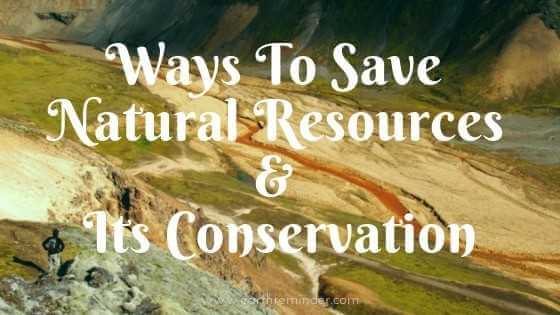Why Conserving Natural Resources is Essential for Our Future
Natural resources are not inexhaustible. Unrestrained consumption, unsustainable practices, and pollution have brought many to the brink of depletion. Examples abound: forests are ruthlessly cleared for agriculture and development, oceans are overfished and polluted, and aquifers are depleted due to excessive pumping.
This rampant degradation has severe consequences. Deforestation leads to soil erosion, biodiversity loss, and climate disruption. Overfishing decimates marine populations, threatening the food security of coastal communities. Water scarcity exacerbates poverty, health issues, and conflict. It is a vicious cycle that endangers not only the environment but also our own well-being.
Environmental Resilience and Climate Change
Natural resources play a pivotal role in maintaining the Earth’s delicate ecosystem. Forests absorb carbon dioxide, regulating the Earth’s temperature and reducing the impacts of climate change. Wetlands act as natural filters, purifying water sources and mitigating floods. Healthy ecosystems provide habitat for countless species, ensuring biodiversity and ecological balance.
Conserving these resources is crucial for bolstering environmental resilience. By preserving forests, protecting wetlands, and safeguarding oceans, we strengthen our ability to withstand the challenges posed by climate change. We reduce the frequency and severity of extreme weather events, maintain food security, and protect human health.
Economic Stability and Innovation
Natural resources are not only environmental assets but also economic drivers. Industries from tourism to agriculture rely heavily on the pristine beauty of natural landscapes, clean water, and abundant resources. Conserving these resources sustains economic growth and provides employment opportunities in rural and coastal areas.
Moreover, natural resources are the backbone of innovation. From the development of new medicines to the creation of bio-based materials, nature serves as a constant source of inspiration for groundbreaking technologies. Preserving these resources ensures a continuous supply of new ideas and advancements that benefit humanity.

Image: www.earthreminder.com
Health and Well-being
Access to clean air, water, and natural spaces is fundamental to human health and well-being. Spending time in nature has been shown to reduce stress, improve mood, and boost immune function. Protected natural areas provide opportunities for recreation, exercise, and mental rejuvenation, enriching our lives and enhancing our overall quality of life.
Responsibility and Future Generations
As stewards of the Earth, we have a moral imperative to conserve natural resources for future generations. We must strike a balance between our current needs and the needs of those who will come after us. By prioritizing sustainable practices and adopting a holistic approach to resource management, we ensure that future generations can enjoy the same abundance and vitality that we have experienced.
Why Is It Necessary To Conserve The Natural Resources
https://youtube.com/watch?v=u-zZwGorTg4
Conclusion
Conserving natural resources is not a choice but a necessity. It is the foundation upon which sustainable societies thrive and the future of our planet depends. By understanding the threats facing our natural assets and recognizing their economic, environmental, and social value, we can make informed choices and advocate for responsible resource management.
Every individual has a role to play in this critical endeavor. By reducing our consumption, adopting sustainable practices, and supporting conservation efforts, we become part of a collective effort to protect our planet and ensure that the natural resources that nourish and sustain us today can continue to do so for generations to come.


